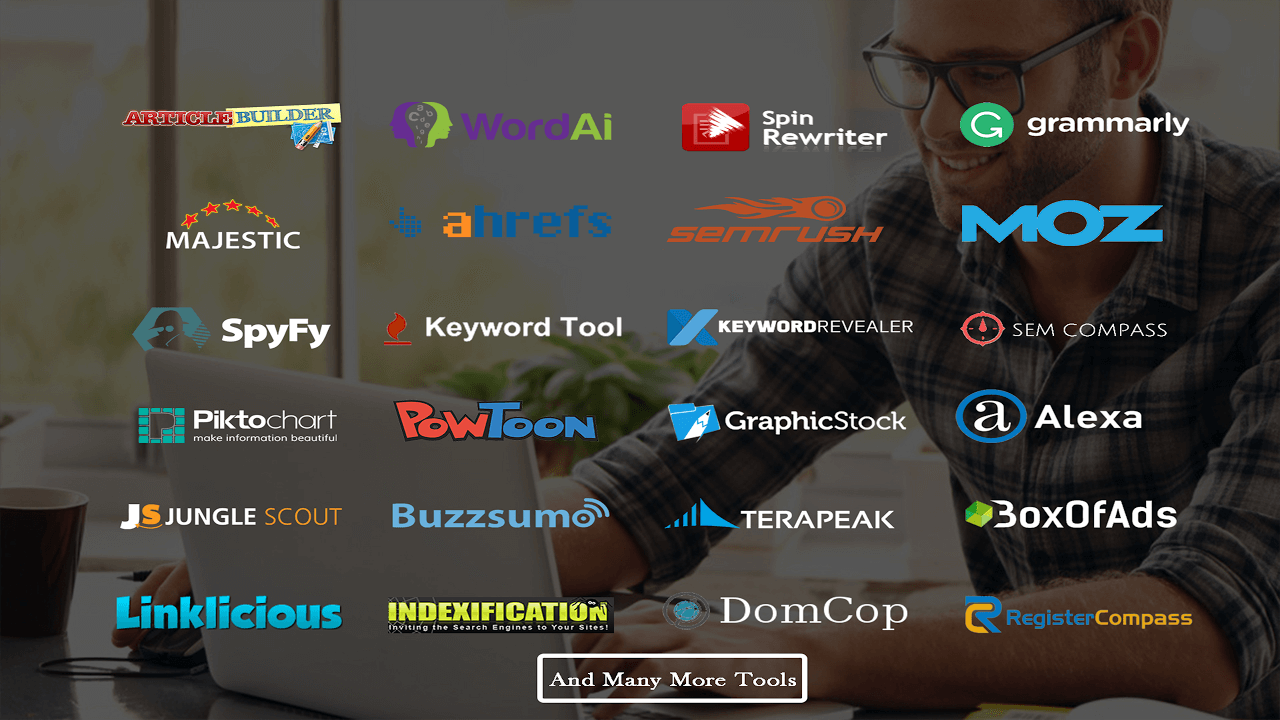Top 20 eCommerce Platforms: A Comprehensive Guide for 2023
In the ever-evolving digital marketplace, selecting the right eCommerce platform for your business is crucial. With numerous options available, it can be challenging to sift through the features, scalability, user experience, and pricing to find the perfect fit. In this article, we will explore the top 20 eCommerce platforms of 2023, providing detailed insights to help you make an informed decision.
- Shopify
Key Features: User-friendly interface, extensive app marketplace, robust customer support.
Ideal For: Small to medium businesses seeking an all-in-one solution.
Unique Selling Point: Shopify offers an extensive range of customizable templates.
- Magento (Adobe Commerce)
Key Features: Highly customizable, strong SEO capabilities, scalable.
Ideal For: Medium to large enterprises with complex needs.
Unique Selling Point: Its open-source nature allows for extensive customization.
- WooCommerce
Key Features: WordPress integration, open-source, extensive plugins.
Ideal For: Existing WordPress users or those seeking flexibility.
Unique Selling Point: Seamlessly integrates with WordPress, offering a familiar interface for users.
- BigCommerce
Key Features: Scalable, multi-channel selling, strong SEO performance.
Ideal For: Businesses looking for growth and scalability.
Unique Selling Point: BigCommerce excels in multi-channel selling across various platforms.
- Wix eCommerce
Key Features: User-friendly, great for beginners, customizable templates.
Ideal For: Small businesses and individuals starting out in eCommerce.
Unique Selling Point: Wix’s drag-and-drop builder makes creating a store incredibly easy.
- Squarespace Commerce
Key Features: Beautiful templates, easy to use, good inventory system.
Ideal For: Creatives and small businesses focusing on aesthetics.
Unique Selling Point: Squarespace offers stunning, artistically-driven design options.
- PrestaShop
Key Features: Free, open-source, customizable.
Ideal For: Tech-savvy merchants looking for a budget-friendly option.
Unique Selling Point: PrestaShop is highly customizable without the need for licensing fees.
- OpenCart
Key Features: Open-source, free, community support.
Ideal For: Small to medium businesses needing a simple solution.
Unique Selling Point: A lightweight solution that offers essential eCommerce features.
- Salesforce Commerce Cloud
Key Features: AI-driven insights, multi-channel support, cloud-based.
Ideal For: Large enterprises needing advanced solutions.
Unique Selling Point: Salesforce integrates CRM and eCommerce for a comprehensive approach.
- Zyro
Key Features: AI tools, easy to use, affordable.
Ideal For: Startups and small businesses.
Unique Selling Point: Zyro offers AI tools like a heatmap tool for website optimization.
- Volusion
Key Features: Data analytics, inventory management, customizable design.
Ideal For: Small to medium-sized businesses with a focus on data.
Unique Selling Point: Strong in analytics and reporting capabilities.
- 3DCart (now Shift4Shop)
Key Features: Rich feature set, scalable, SEO-friendly.
Ideal For: Businesses of all sizes looking for a comprehensive platform.
Unique Selling Point: Offers a vast range of built-in features.
- Shopware
Key Features: Open-source, customizable, suitable for B2B and B2C.
Ideal For: European businesses and those requiring a flexible platform.
Unique Selling Point: Strong focus on the European market with specific features.
- Kibo Commerce
Key Features: Omnichannel capabilities, customizable, cloud-based.
Ideal For: Mid-sized to large businesses needing an omnichannel approach.
Unique Selling Point: Offers a unified commerce solution that encompasses eCommerce, mobile, and in-store experiences.
- Ecwid
Key Features: Easy integration with existing websites, social media selling.
Ideal For: Small businesses wanting to add an online store to an existing site.
Unique Selling Point: Integrates easily with any existing website or social media platform.
- Weebly eCommerce
Key Features: Easy to use, affordable, Square integration.
Ideal For: Small businesses and entrepreneurs.
Unique Selling Point: Great for businesses already using Square for payment processing.
- VTEX
Key Features: Cloud-based, omnichannel, customizable.
Ideal For: Medium to large businesses needing a comprehensive solution.
Unique Selling Point: Strong in managing complex operations and multi-regional challenges.
- Shopify Plus
Key Features: High scalability, advanced features, 24/7 support.
Ideal For: Large businesses or fast-growing startups.
Unique Selling Point: Offers enterprise-grade solutions with Shopify’s ease of use.
- Zen Cart
Key Features: Open-source, community-driven, customizable.
Ideal For: Those with some technical expertise seeking a free platform.
Unique Selling Point: A robust community offering free user support and add-ons.
- osCommerce
Key Features: Free, open-source, community-supported.
Ideal For: Small to medium businesses looking for a basic, no-cost solution.
Unique Selling Point: One of the original open-source platforms with a strong community.
Choosing the right eCommerce platform is a decision that will impact the growth and success of your online business. Factors such as business size, technical expertise, budget, and specific requirements play a crucial role in this choice.
Each platform listed offers unique features and benefits, making it vital to assess your needs against what each platform provides. Whether you are a small startup or a large enterprise, there is an eCommerce solution out there that can cater to your specific needs and help propel your business to new heights.
Navigating the eCommerce Landscape: Additional Considerations
While the list above provides a comprehensive overview of the top 20 eCommerce platforms, choosing the right one for your business goes beyond just features and pricing. Here are some additional considerations to keep in mind:
Customization and Flexibility
Scalability: As your business grows, your eCommerce platform should be able to scale with you. Platforms like Shopify Plus and Magento are known for their scalability.
Customizability: If having a unique storefront is crucial, consider platforms like Magento or PrestaShop that offer extensive customization options.
Ease of Use and Support
User Interface: For those with limited technical expertise, user-friendly platforms like Wix eCommerce and Squarespace Commerce are ideal.
Customer Support: Platforms like Shopify and BigCommerce offer robust support, which can be invaluable for resolving issues quickly.
Integration and Multi-Channel Selling
Integrations: Your eCommerce platform should integrate seamlessly with other tools and services you use, such as email marketing software, CRM systems, and accounting tools.
Multi-Channel Selling: If you plan to sell on multiple platforms (like Amazon, eBay, or social media), platforms like BigCommerce and Shopify offer strong multi-channel capabilities.
SEO and Marketing Tools
SEO Capabilities: Platforms like WooCommerce and Shopify offer strong SEO features to help your store rank higher in search results.
Marketing Tools: Look for platforms that provide built-in marketing tools, including email marketing, social media integration, and loyalty programs.
Security and Payment Processing
Security: Ensure the platform you choose complies with security standards like PCI DSS, especially if you’re handling sensitive customer data.
Payment Processing: Consider the types of payment gateways and options the platform supports. Some, like Shopify, come with their own payment processors.
Pricing and Total Cost of Ownership
Pricing Models: Understand the pricing models of each platform. Some, like WooCommerce, are free to start but may require additional costs for hosting and plugins.
Total Cost of Ownership: Consider not just the monthly fees but also the costs of add-ons, customizations, and maintenance.
Selecting an eCommerce platform is a pivotal decision for your online business. It’s essential to consider not just the immediate needs but also long-term scalability and flexibility. While the platforms listed offer a range of options catering to various business sizes and industries, the best choice ultimately depends on your specific business needs, technical capabilities, and growth aspirations.
In this dynamic digital age, your eCommerce platform is more than just a tool; it’s the foundation upon which your online business will thrive. Therefore, invest time in researching, compare features against your requirements, and consider the future trajectory of your business when making this crucial decision.
With the right platform, you’re not just building an online store; you’re crafting an experience that resonates with your customers and sets the stage for your business’s success in the digital marketplace.









